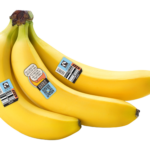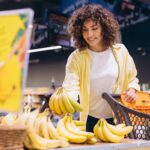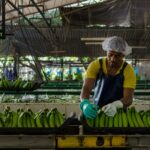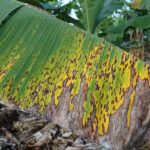Ecuadorian banana industry focused on marketing for consumers in 2025
January 09 , 2025


José Antonio Hidalgo, the Executive Director of the Ecuadorian Banana Exporters Association (AEBE), spoke to FreshFruitPortal.com about the Ecuadorian banana industry's performance in 2024 and key projections for 2025.
To provide context on the sector's performance, he noted that Ecuador's banana industry closed 2023 with a final box count of 326.37 million, while 2024 ended with 330.90 million boxes, reflecting a growth of 1.39%.
He explained that the increase during the first half of 2024 was primarily driven by favorable climatic conditions in the production areas.
Hidalgo added, "The industry has been recovering in terms of climate issues, but we’ve also faced challenges in the phytosanitary area due to bacterial wilt, which has been a significant challenge in recent years."
He highlighted that Ecuador has approximately 200,000 hectares of registered banana plantations, with 5,400 producers—ranging from small to large—operating across various regions.
Given the country’s current production landscape, Hidalgo explained that they are collaborating closely with the Ministry of Agriculture, the local phytosanitary agency (Agrocalidad), and provincial governments "to strengthen our banana statistical observatory, which tracks export and production statistics."
He also discussed the 'Safe Banana' project, which aims to prevent Fusarium Race 4 by implementing biosecurity measures, assessing production areas, and conducting censuses to ensure compliance with biosecurity protocols.
"We are working on a national-level diagnosis, in addition to promoting training and support for prevention in biosecurity. We are now focused on brigades and interventions to help producers who cannot address their infection hotspots," Hidalgo explained.
Hidalgo also pointed out the issue of rural insecurity. "To address this, we worked on an initiative with the consultancy of former Colombian Defense Minister Diego Molano through the Safe Farms project."
He mentioned that they aim to establish a protocol that can serve as a security model for producers, "which is why we need to coordinate with each area for joint work with law enforcement."
Market adaptation and sustainability
Hidalgo identified market adaptation to cost increases as another major challenge, stating that "these cost increases have been reflected in the official price we have for this year." He noted that the price was raised from $7.25 nationally and added, "We expect markets to adapt to this decision."
He also expressed concern over the lack of commitment from supermarkets, particularly in Europe, to launch campaigns aimed at consumers regarding price increases.
"So far, only two supermarket chains have worked with us on fair trade, but we still haven't received a response from the others, which worries us," he said.
Hidalgo emphasized the industry's commitment to sustainability and safety, aiming to improve the fruit's value. "We need to promote campaigns aimed at the consumer so they understand the true cost of sustainability."
"I’m confident that if consumers understand the effort behind improving environmental conditions, with social projects, certifications, and meeting fair wage standards, they will justify a small price increase... they will understand."
He also noted the disparity in market valuation, adding, "We see in the market that other fruits have been increasing their value to the final consumer, and they are being better valued than our devaluation of bananas over the past few years."
"This year, we want to highlight the efforts of the banana producers and ensure the consumer fairly compensates them. We will continue monitoring the behavior of each market in light of the cost increases we’ve faced," he added.
Hidalgo further explained that adopting green policies has placed additional pressure on the European market. "This has led to us becoming an over-certified sector; we now have more than 11 certification labels."
Plans for 2025
Looking ahead, Hidalgo outlined plans for 2025, focusing on developing resistant varieties to tackle challenges such as bacterial wilt and Fusarium Race 4. "We must focus on prevention," he emphasized.
He also clarified AEBE’s broader goals: "At AEBE, we want to keep growing, as we are an institution with two consolidated platforms: the convention in Machala, with a technical profile, and the second in Guayaquil, with Banana Time."
Hidalgo concluded by highlighting the importance of these events as global meeting spaces for banana producers and key players in the supply chain.







To provide the best experiences, we and our partners use technologies like cookies to store and/or access device information. Consenting to these technologies will allow us and our partners to process personal data such as browsing behavior or unique IDs on this site and show (non-) personalized ads. Not consenting or withdrawing consent, may adversely affect certain features and functions.
Click below to consent to the above or make granular choices. Your choices will be applied to this site only. You can change your settings at any time, including withdrawing your consent, by using the toggles on the Cookie Policy, or by clicking on the manage consent button at the bottom of the screen.

